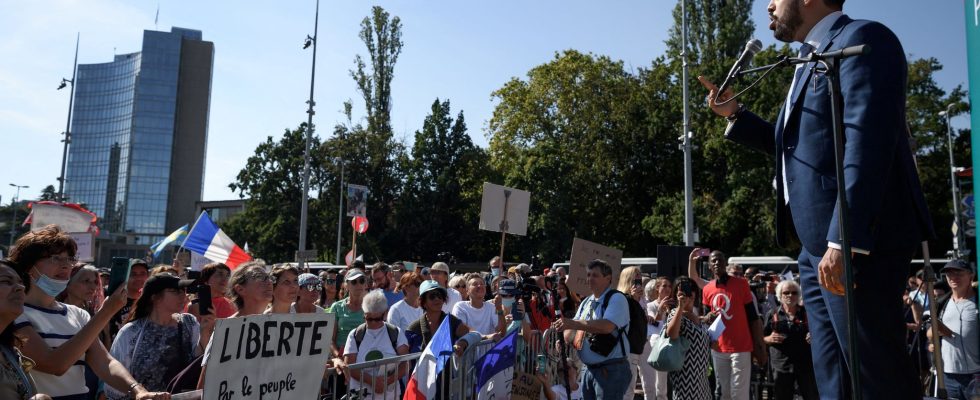With or without fake noses, they seek to dynamite Western unity in the face of the destructive madness of Vladimir Poutine. Out of anti-Americanism, out of hatred for our liberal democracy, those who are nicknamed the pro-Russians and the “useful idiots” of the Kremlin are active on social networks and in political spheres. We thought they were condemned to silence since the Russian invasion, they have never been so dangerous.
EPISODE 1 – Between Russia and the French far right, lasting support and a facade of mistrust
EPISODE 2 – War in Ukraine: when Russophiles insist on boasting of a “Russian power”
On July 4, Silvano Trotta, entrepreneur and UFO hunter, split a message for the 150,000 subscribers of his Telegram loop: “Ukraine is the hub of the global trafficking in human organs. Zelensky is at the head of this traffic, it is much worse than a war criminal”, he wrote, before adding: “The EU, the US, NATO are liars […] Long before the conflict with Russia, all these countries knew”. is frowned upon, the unanimous condemnation of the Russian aggression was immediately perceived as suspicious. “These circles met around a common point: the contestation of what they consider to be the ‘system’, the word dominant,” said Tristan Mendès France, associate lecturer at Paris-Diderot University, a digital specialist.
It is also on Telegram that Le Grand Réveil, one of the main French-speaking conspiracy sites (more than 93,000 subscribers), regularly shares publications repeating that the conflict in Ukraine is a conspiracy aimed at the advent of a new order. global. Each time, the story told is similar: the truth is more complex than what the mainstream media claims. Russia’s responsibility for the conflict is diluted, if not outright denied.
Figure of the French conspiracy, Idriss Aberkane deploys a similar argument on his YouTube channel (835,000 subscribers). He sees in the demonstrations that occurred in 2014 in kyiv, which protested against the Russian intervention in Crimea, the hand of the CIA. In a video published in September 2022, he claims that Barack Obama would be the real leader of the United States. According to him, the former president, belonging to the world of intelligence, seeks to destabilize Russia at all costs. “The conspiracy and the pro-Kremlin argument have the same software: democracies manipulate us. In a post written on March 4, lawyer Régis de Castelnau, seen in the covido-skeptical documentary Heist, evoked a “defensive operation” carried out “in the interests of the Russians”, transformed by force of circumstance into a “civilizational hybrid war”.
“We must reject their speech, decrypts Marie Peltier, author ofObsession. Behind the scenes of the conspiracy story (ed. Uneducated). Very followed during the Covid, these figures did not become pro-Putin with the Russian invasion. They already were.” Yves Pozzo di Borgo, former centrist senator addicted to Twitter, is another example: this antivax often relays the words of Russian officials to his 88,000 Twitter subscribers. He did not wait for the pandemic to find the Kremlin sympathetic. In 2015, he went, with other parliamentarians, to Crimea annexed by Russia after a referendum contrary to international law. “Dictatorships understood before our democracies the importance of the information battle, observes Marie Peltier. They started the work more than ten years ago, especially through the conspiratorial spheres.” The conspiracy’s love for the Kremlin is therefore not a novelty, but the fruit of a long process.
